Cantopop is a genre of pop music written in standard Chinese and sung in Cantonese. Cantopop is also used to refer to the cultural context of its production and consumption. The genre began in the 1970s and became associated with Hong Kong popular music from the middle of the decade. Cantopop then reached its height of popularity in the 1980s and 1990s before slowly declining in the 2000s and shrinking in the 2010s. The term "Cantopop" itself was coined in 1978 after "Cantorock", a term first used in 1974. In the 1980s, Cantopop reached its highest glory with fanbase and concerts all over the world, especially in Macau, Mainland China, Taiwan, Singapore, Malaysia, South Korea, and Japan. This was even more obvious with the influx of songs from Hong Kong movies during the time.

Faye Wong is a Chinese-Hong Kong singer-songwriter and actress. Early in her career she briefly used the stage name Shirley Wong. Born in Beijing, she moved to Hong Kong at the age of 18. Debuted with the Cantonese album Shirley Wong (1989), she came to public attention by combining alternative music with mainstream Chinese pop. Since 1994, she has recorded mostly in her native Mandarin. In 2000, she was recognised by Guinness World Records as the "Best Selling Canto-Pop Female". Upon her second marriage in 2005, she withdrew from the limelight, though sporadically returned to the stage.
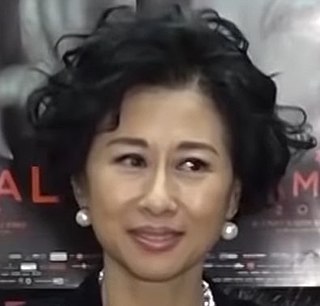
Sally Yeh, sometimes credited as Sally Yip or Yip Sin-man, is a Hong Kong Cantopop diva and actress.
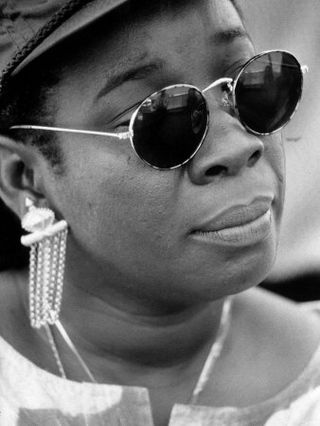
Alfarita Constantia Marley is a Cuban-born Jamaican singer, songwriter and entrepreneur. She is the widow of reggae legend Bob Marley. Along with Marcia Griffiths and Judy Mowatt, Marley was a member of the reggae vocal group the I Threes, the backing vocalists for Bob Marley and the Wailers.

James Wong Jim was a Cantopop lyricist and songwriter based primarily in Hong Kong. Beginning from the 1960s, he was the lyricist for over 2,000 songs, collaborating with songwriter Joseph Koo on many popular television theme songs, many of which have become classics of the genre. His work propelled Cantopop to unprecedented popularity.

Shirley Kwan or Kwan Suk Yee is an influential former Cantopop singer from Hong Kong. Kwan first shot to fame in 1989 with the hit, "Happy Are Those in Love" (難得有情人) and was widely popular throughout the early to mid-1990s. She is noted for her distinct, whispery vocal style and known equally for singing mainstream ballads and more alternative songs. She announced her retirement from music industry in April 2020.
Emily Wong is a singer and actress. She is an artist of Amusic.

Faye Wong is the fourteenth album and fifth Mandarin album by Beijing-based C-pop singer Faye Wong. The first album to hers under the umbrella of EMI, it was released on 26 September 1997. There are ten songs in total, one of which is a cover. Unlike her last studio album Fuzao, which was an artistic attempt, this time the album's style is more focused on the balance between mainstream and avant-garde. The album is generally languid, mellow and pervaded by an attitude of contentment.
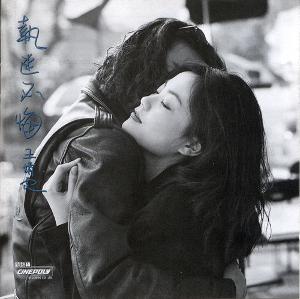
No Regrets, also translated Stubborn and Regretless and Never Deplore, is the translated title of a 1993 Cantonese album recorded by Chinese Cantopop singer Faye Wong when she was based in Hong Kong. The title track was released in both Cantonese and Mandarin.
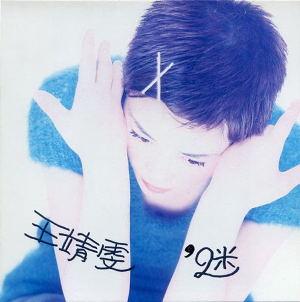
Mystery is a Mandarin studio album recorded by Chinese singer Faye Wong. It was released through Cinepoly Records on April 8, 1994.

Di-Dar is the ninth and last Cantonese album by Chinese recording artist Faye Wong, released on December 22, 1995, through Cinepoly. The album marked a shift from Wong's earlier style as she incorporated British psychedelic rock and ragga into her work, showcasing her evolving alternative musical influences. Di-dar featured compositions by Wong with arrangements by her then-husband Dou Wei, production by Zhang Yadong and lyrics by Lin Xi.
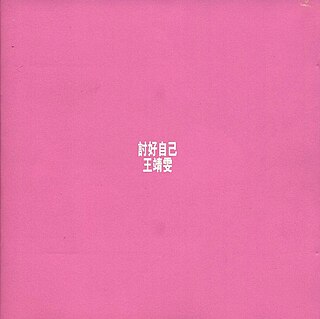
Tou hou ji geiYale Romanization, meaning Please Myself or Ingratiate Oneself, is a 1994 Cantonese album recorded by Chinese Cantopop singer Faye Wong as 王靖雯 Wong Ching Man, when she was based in Hong Kong.

To Love is a Mandarin studio album by Chinese recording artist Faye Wong. To Love is Wong's 19th official studio album, and the first to be released by Sony Music Asia. As of 2020 it remains her last album to date. Released on 7 November 2003, it has 13 tracks: 10 in Mandarin and 3 in Cantonese. Wong wrote the music and lyrics for 3 songs, the title track "To Love", "Leave Nothing" (不留) and "Sunshine Dearest" (陽寶), as well as the music for "April Snow" (四月雪).
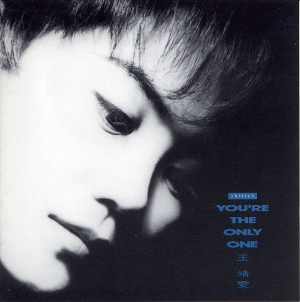
You're the Only One is a 1990 Cantonese album recorded by Chinese Cantopop singer Faye Wong as 王靖雯 Wong Ching Man, when she was based in Hong Kong.

Shirley Wong is the debut album by Chinese Cantopop singer Faye Wong when she was based in Hong Kong, then using the stage name Shirley Wong. It was released in 1989 on the Cinepoly label.
Su Rui is a Taiwanese singer. In 1968, Su Rui skipped class to participate in a singing competition and was selected, joining the Zero Chorus to sing Western pop songs, and began her singing career. Later, she joined the Action Choir, named Julie in English. In 1971, she graduated from high school and began to perform at the Qingquangang American Army Club (CCK) in Taichung with Yingying Huang and they became friends. In 1973, she became the first female singer in residence at the Taipei Hilton. She was recommended to perform at the Hilton Hotel in Hong Kong, singing in Hong Kong for 3 years. Before becoming a singer, Su Rui wanted to be a physical education teacher. At that time, she was good at track and field and basketball, so she hoped to be a teacher and teach students.
Song Bird (天涯歌女) is a historical drama television series produced by TVB and broadcast in Hong Kong in 1989. The story is based on the life of shidaiqu singer Zhou Xuan. The Chinese name of the TV series comes from the name of one of the songs used in the 1937 film Street Angel.

The discography of Faye Wong, one of the leading stars of Chinese pop music, includes 20 studio albums and 5 extended plays (EP).

Connie Mak Kit-man, also called Connie Mak and Kitman Mak, is a Hong Kong singer and actress. Her ancestral hometown is Qingyuan, Guangdong.

Irreconcilable is the first Cantonese studio album recorded by Taiwanese singer Teresa Teng, released via Polydor Records on December 18, 1980. The album was supported with the single "Forget Him", which was written by Hong Kong media personality James Wong Jim.
















